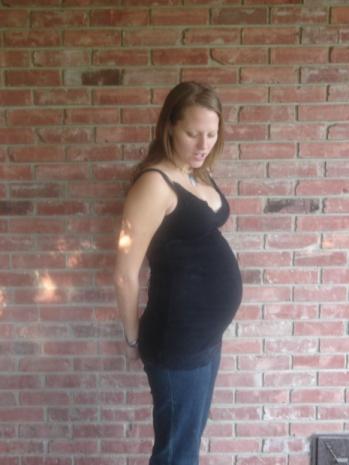The first trimester is a time of mixed emotions for many expectant mothers; dealing with morning sickness, excited about a new baby, wondering what the coming months will bring. When she experiences bleeding or spotting, one of the first thoughts is, miscarriage. While miscarriage—or potential miscarriage—can cause bleeding, there are other reasons a woman would bleed in the first trimester and some are benign. The mother’s obstetrician should always be informed immediately; he can determine the reason for any bleeding and what can be done.
Egg Implanting
Once the egg is fertilized, it moves down the fallopian tubes where it implants in the lining of the uterus. In some pregnancies, this causes light spotting. Since this spotting happens during the early stages of pregnancy, many women don’t even realize they are pregnant.
Changes, Injury and Infection
After conception, the mouth of the cervix begins to close tightly and swell as a result of increased blood flow. If there is any residual blood left from the previous menstrual period, the cervix may squeeze it out. The mother may experience spotting of what appears to be old blood. The swollen cervix may be injured as a result of sex or a pelvic exam, causing spotting or light bleeding. Infections in the cervix can also cause bleeding.
Miscarriage
Miscarriage is the loss of the baby before 20 weeks of pregnancy; and according to WebMD, one in four pregnancies end in miscarriage. Bleeding—especially if it is accompanied with cramping—is a sign of miscarriage. Mothers who are carrying multiples might miscarry one, or more, of the babies while carry the other baby to full term.
Ectopic Pregnancy
In some pregnancies, the fertilized egg is blocked from reaching the uterus, and implants elsewhere, generally in the fallopian tubes. This is a dangerous situation, as the tube can rupture as a result of the growing fetus and can be life-threatening. Symptoms of an ectopic pregnancy include light bleeding, nausea and vomiting, dizziness, weakness, cramping and pain on one side or in the shoulder, neck or rectum. An expectant mother experiencing these symptoms should seek immediate medical attention.
Molar Pregnancy
In some pregnancies, a cluster of tissue—a molar pregnancy—develops instead of a fetus. There are many causes of a molar, mostly due to an abnormally formed egg. Women with a molar pregnancy will experience normal pregnancy symptoms, but can also experience discharge of grape-like tissue, bleeding, nausea, vomiting or pelvic discomfort.





